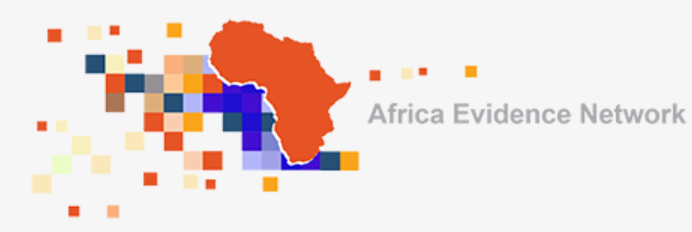
When we develop policy, deliver programmes or carry out research we all take slightly different routes to finding the evidence that helps to shape our decision making process. Every individual has their own range of contacts, systems and networks that they often rely on to support their search for evidence. However, a very simple but persistent barrier that prevents us from using evidence is not being able to find it easily using online systems. This can lead us to relying on a few well known sources that effectively serves to limit the information that flows through to us.
In the organisation where I work – the UK Department for International Development (DFID) – the results from our 2013 Evidence Survey demonstrated that only 30% of staff agreed with the statement that evidence was ‘easy to find’. Indeed, staff identified that the two main barriers to using evidence in DFID were easily finding evidence and having enough time to consider evidence.
I will try to not make any false assumptions, but I would be happy to take a wild guess that the longer you spend searching for evidence, the less time you will actually have to consider it (unless of course you work in a mystery Utopian world that involves a lack of deadlines and bundles of spare time….in which case I would like to meet you to understand how you came to find yourself in this luxurious position).
Networks such as the AEN can provide great value by expanding our knowledge of the different online systems that exist to support better policy development. As a DFID Research Uptake Manager I thought it would be helpful to provide a brief outline of the systems that we fund to improve access to southern research and also provide links to some of the more well-known global resources that are available.
The resources outlined below are open platforms that provide access to synthesised research, impact evaluations and policy briefings with a development orientated focus. Clearly, this is bias towards my preferences, not anywhere near exhaustive and requires comments from all of you to help us uncover the less well known platforms that provide access to rigorous evidence (this is not one for the ‘Google Lovers Club’ – though it is obviously often the best choice for a number of reasons).
One of the key questions about these ‘systems’ that I keep referring to is about how they actually support development practice and ultimately support efforts to reduce poverty. DFID is doing some thinking about the value of online research portals and repositories that we have funded, past and present, through an independent evaluation that we recently commissioned. The evaluation will investigate the information needs and information-seeking behaviour on the internet, of development practitioners. Despite significant programming efforts in this area in recent years we still have surprisingly little rigorous evidence about what works and why. We look forward to sharing the findings of the work early next year.
And finally, here is the list that I keep on referring too. Go forth and access evidence!
| Service | More information |
| 3ie | Provides access to a wide range of evidence including impact evaluations, systematic reviews and policy briefs. |
| Cochrane Library | A collection of six databases that contain different types of high-quality, independent evidence to inform healthcare decision-making. |
| Campbell Library | The Campbell Collaboration is an international research network that produces systematic reviews of the effects of social interventions in Crime & Justice, Education, International Development, and Social Welfare. |
| British Library for Development Studies (BLDS) Digital Library | Full text international development research papers from a range of southern organisations |
| BRIDGE | Summarised and synthesised international development gender-related research products |
| Eldis
|
Full text international development research, organised by theme and country/region |
| ELLA | Library of research on evidence and learning from Latin America and select publications from others on governance, environmental management and economic development. |
| Journals Online | Journals Online (JOLs) are databases of journals published in a country or Region (i.e. Bangladesh Journals Online or Latin America Journals Online) covering the full range of academic disciplines. |
| PEAKS | The DFID funded Professional Evidence & Applied Knowledge Services (PEAKS) provide access to online evidence resources in particular subject areas. Services are provided through four professional groups:
|
| SciDev.Net | Reliable and authoritative science and technology information for the global South, presented in engaging formats. |
| R4D | Research for Development (R4D) is a searchable database for DFID funded research outputs and programme information. It contains over 45,000 records and outputs.This is a useful site if you are looking for evidence by region, country or subject. It contains a wide range of evidence products, including topic guides, systematic reviews and journal articles. |
For comments and suggestions on additional online platforms, research portals, and repositories please email cfar@uj.ac.za
We would like to thank everybody who has suggested additional helpful online platforms over the last two weeks. Based on these, we provided an updated list below:
| IDRC | IDRC’s research database collects over 40 years of IDRC-supported research, which can be searched by development programme, region, and keywords. |
| Innovations for Poverty Action | Database featuring IPA’s research, which mainly focuses on randomised controlled trials of a range of development interventions. |
| JPAL | JPAL’s evaluation database features 626 randomized evaluations of development interventions. The database can be searched using keywords, filters, or the region-theme matrix. |
| MamaYe | Evidence database to improve maternal and newborn survival in sub-Saharan Africa. |
| Oxfam | Oxfam’s policy and practice website offers free access to over 3,750 publications including training manuals, research reports and policy briefs. |
| World Bank | World Bank’s open knowledge repository provides free access to the bank’s public development research. |